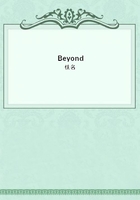
第12章
"No; I should not know your country--you are neither of the North nor of the South. You are just Woman, made to be adored. I came here hoping to meet you; I am extremely happy. Miss Winton, I am your very devoted servant."He was speaking very fast, very low, with an agitated earnestness that surely could not be put on. But suddenly muttering: "These people!" he made her another of his little bows and abruptly slipped away. The baroness was bringing up another man. The chief thought left by that meeting was: "Is that how he begins to everyone?" She could not quite believe it. The stammering earnestness of his voice, those humbly adoring looks! Then she remembered the smile on the lips of the little Pole, and thought:
"But he must know I'm not silly enough just to be taken in by vulgar flattery!"Too sensitive to confide in anyone, she had no chance to ventilate the curious sensations of attraction and repulsion that began fermenting in her, feelings defying analysis, mingling and quarrelling deep down in her heart. It was certainly not love, not even the beginning of that; but it was the kind of dangerous interest children feel in things mysterious, out of reach, yet within reach, if only they dared! And the tug of music was there, and the tug of those words of the baroness about salvation--the thought of achieving the impossible, reserved only for the woman of supreme charm, for the true victress. But all these thoughts and feelings were as yet in embryo. She might never see him again!
And she certainly did not know whether she even wanted to.
IV
Gyp was in the habit of walking with Winton to the Kochbrunnen, where, with other patient-folk, he was required to drink slowly for twenty minutes every morning. While he was imbibing she would sit in a remote corner of the garden, and read a novel in the Reclam edition, as a daily German lesson.
She was sitting there, the morning after the "at-home" at the Baroness von Maisen's, reading Turgenev's "Torrents of Spring,"when she saw Count Rosek sauntering down the path with a glass of the waters in his hand. Instant memory of the smile with which he had introduced Fiorsen made her take cover beneath her sunshade.
She could see his patent-leathered feet, and well-turned, peg-top-trousered legs go by with the gait of a man whose waist is corseted. The certainty that he wore those prerogatives of womanhood increased her dislike. How dare men be so effeminate?
Yet someone had told her that he was a good rider, a good fencer, and very strong. She drew a breath of relief when he was past, and, for fear he might turn and come back, closed her little book and slipped away. But her figure and her springing step were more unmistakable than she knew.
Next morning, on the same bench, she was reading breathlessly the scene between Gemma and Sanin at the window, when she heard Fiorsen's voice, behind her, say:
"Miss Winton!"
He, too, held a glass of the waters in one hand, and his hat in the other.
"I have just made your father's acquaintance. May I sit down a minute?"Gyp drew to one side on the bench, and he sat down.
"What are you reading?"
"A story called 'Torrents of Spring.'"
"Ah, the finest ever written! Where are you?""Gemma and Sanin in the thunderstorm."
"Wait! You have Madame Polozov to come! What a creation! How old are you, Miss Winton?""Twenty-two."
"You would be too young to appreciate that story if you were not YOU. But you know much--by instinct. What is your Christian name--forgive me!"
"Ghita."
"Ghita? Not soft enough."
"I am always called Gyp."
"Gyp--ah, Gyp! Yes; Gyp!"
He repeated her name so impersonally that she could not be angry.
"I told your father I have had the pleasure of meeting you. He was very polite."Gyp said coldly:
"My father is always polite."
"Like the ice in which they put champagne."
Gyp smiled; she could not help it.
And suddenly he said:
"I suppose they have told you that I am a mauvais sujet." Gyp inclined her head. He looked at her steadily, and said: "It is true. But I could be better--much."She wanted to look at him, but could not. A queer sort of exultation had seized on her. This man had power; yet she had power over him. If she wished she could make him her slave, her dog, chain him to her. She had but to hold out her hand, and he would go on his knees to kiss it. She had but to say, "Come," and he would come from wherever he might be. She had but to say, "Be good," and he would be good. It was her first experience of power;and it was intoxicating. But--but! Gyp could never be self-confident for long; over her most victorious moments brooded the shadow of distrust. As if he read her thought, Fiorsen said:
"Tell me to do something--anything; I will do it, Miss Winton.""Then--go back to London at once. You are wasting yourself here, you know. You said so!"He looked at her, bewildered and upset, and muttered:
"You have asked me the one thing I can't do, Miss--Miss Gyp!""Please--not that; it's like a servant!"
"I AM your servant!"
"Is that why you won't do what I ask you?"
"You are cruel."
Gyp laughed.
He got up and said, with sudden fierceness:
"I am not going away from you; do not think it." Bending with the utmost swiftness, he took her hand, put his lips to it, and turned on his heel.
Gyp, uneasy and astonished, stared at her hand, still tingling from the pressure of his bristly moustache. Then she laughed again--it was just "foreign" to have your hand kissed--and went back to her book, without taking in the words.